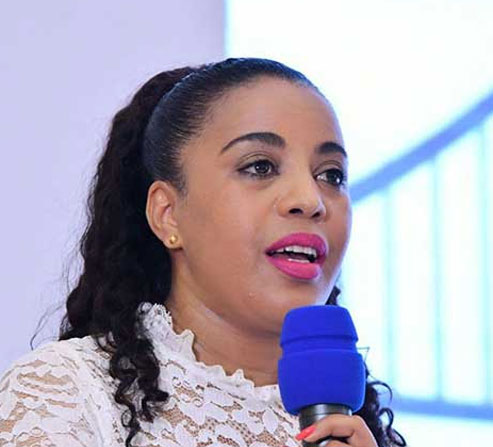
Radar | Feb 08,2020
The Ethiopian Communications Authority, the telecom and radio-frequency regulatory organ, has drafted a directive that compels telecommunications operators to share infrastructure with other competitors in the industry.
The 21-page draft directive, which was availed for public discussion early last week, states that all telecommunications operators have the right to request infrastructure sharing services from any telecommunications operator. The operators that received an application should also negotiate the terms of an agreement in good faith and not obstruct the negotiations, according to the draft directive.
However, the directive gave room for the requested telecom operator to decline any application. It can reject an application if it has insufficient capacity or space; issues with safety, reliability, incompatibility of facilities; for integrity and security of the public telecommunications network and service; and if sharing is not economically or technically feasible.
Network sharing and collocation include giving access to conduits or pipes; providing network infrastructure, facilities or premises for infrastructure sharing; allowing access to telecom towers; leasing fibre and copper as well as give access to facilities, sites or buildings.
Collocation has a great advantage for the new operators since building new infrastructure will take time and investment, according to Balcha Reba, director-general of the Authority, which is in the process of issuing licenses to two new telecom operators.
"The incumbent [Ethio telecom] will generate additional revenues by sharing its infrastructure," he said.
An operator that requests a collocation service has to place its request in a written form to the requested operator and should inform the Authority in writing within five working days of the request. Within two weeks of the application, the requested party should respond to the requester and begin negotiations, according to the draft directive.
The two parties should conclude the agreement within 30 working days after initiating negotiations or within a reasonable time frame agreed to by both parties.
If the requested party does not accept the request for infrastructure sharing, it should justify the reason in a written format within 15 working days of receiving the request. The operator should also file a copy of the letter with the Authority within seven working days. If the two operators run into a dispute during operations, the Authority will intervene and settle the issue based on the procedures established in the Authority’s dispute resolution directive.
A telecommunications operator installing or constructing its own new network infrastructure or facilities - including masts, poles, towers, ducts, trenches, dark fibre, buildings and sites - must reserve at least half of its total available space or capacity for collocation and infrastructure sharing, according to the directive.
Ethio telecom has prepared itself to share its infrastructure facilities, including the 7,100 towers and over 22,000Km of fibre optics with the new operators, according to its CEO, Frehiwot Tamiru.
The company also prepared a strategic document along with the new fiscal year's budget and got approval from the board, according to her. In the document, the company has allocated a budget to do enforcement on the existing infrastructure to enable it to accommodate another telecom service provider.
"After doing a study," she said, "we were persuaded that the investment would provide a good return."
Ethio telecom also underwent a reorganisation that divided its network infrastructure department into five divisions based on the nature of the network. The divisions are Fixed Network, Wireless Network, Infrastructure-Power & Environment, Infrastructure-Transport Network, and National Operation & Service Management.
Along with the infrastructure sharing directive, the Authority drafted a bill that provides a framework to govern interconnection agreements between telecommunications networks of different service providers.
Interconnection involves the physical, technical and logical linking of the telecommunications networks of different operators to allow users of one operator to communicate with users from another or to access services provided by another operator.
"It outlines guidelines for setting interconnection fees and deciding on points of interconnection," Balcha said. "It aims at making seamless interconnection and ensuring ease of communications among different operators."
With the two new ones, the Authority has drafted seven directives that enable the regulatory body to license companies, governing consumer rights and protections, handle dispute resolution, regulate the quality of service and issuing numbers. It has a plan to issue a total of 12 directives.
As a next step of issuing two new telecom licenses, the Authority is expected to send out a request for qualification (RFQ) in a few weeks to the companies screened from the 12 companies that have shown interest in joining Ethiopia's telecommunication industry.
The two new operators will get a 15-year license that will enable them to provide combined services for mobile, internet and fixed calling. For the screening and licensing process, the Authority has hired the International Finance Corporation (IFC) as a transaction advisor. IFC also hired four international consultants in charge of the technical aspects; taxes and auditing; and the legal and communications issues.
PUBLISHED ON
Aug 08,2020 [ VOL
21 , NO
1058]

Radar | Feb 08,2020

Radar | Oct 02,2023

Radar | May 15,2021

Radar | Jul 15,2023

Fortune News | Jan 07,2022

Fortune News | May 28,2022

Radar | Jan 05,2019

Fortune News | Oct 25, 2024

Radar | May 29,2021

Radar | Dec 21,2019

Dec 22 , 2024 . By TIZITA SHEWAFERAW
Charged with transforming colossal state-owned enterprises into modern and competitiv...

Aug 18 , 2024 . By AKSAH ITALO
Although predictable Yonas Zerihun's job in the ride-hailing service is not immune to...

Jul 28 , 2024 . By TIZITA SHEWAFERAW
Unhabitual, perhaps too many, Samuel Gebreyohannes, 38, used to occasionally enjoy a couple of beers at breakfast. However, he recently swit...

Jul 13 , 2024 . By AKSAH ITALO
Investors who rely on tractors, trucks, and field vehicles for commuting, transporting commodities, and f...

Nov 1 , 2025
The National Bank of Ethiopia (NBE) issued a statement two weeks ago that appeared to...

Oct 25 , 2025
The regulatory machinery is on overdrive. In only two years, no fewer than 35 new pro...

Oct 18 , 2025
The political establishment, notably the ruling party and its top brass, has become p...

Oct 11 , 2025
Ladislas Farago, a roving Associated Press (AP) correspondent, arrived in Ethiopia in...